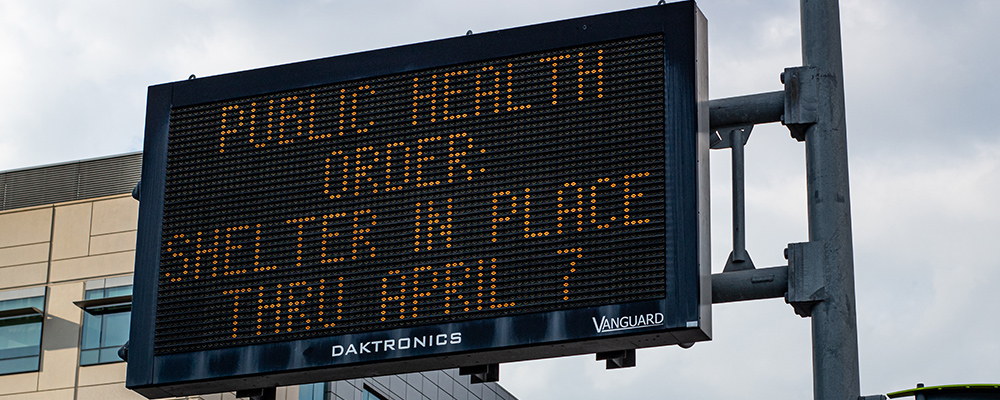
The COVID-19 pandemic has created unique challenges for emergency managers, public health officials, and other emergency planners. Even as the nationwide vaccination effort ramps up, the need to consider the virus’s spread and impact will remain significant well into 2021, and potentially beyond.
A new rapid expert consultation, Emergency Evacuation and Sheltering During the COVID-19 Pandemic, was developed through a collaboration between Natural Hazards Center and the National Academies of Sciences, Engineering, and Medicine. It identifies strategies for decision-makers to consider as they update emergency evacuation, sheltering, and mass care plans in the context of COVID-19. It also provides guidance on how to communicate effectively about these issues in the face of a continually evolving public health threat.
Evacuation
The pandemic complicates evacuation planning, as the risk of virus transmission can make traditional evacuation plans unsafe. For example, last-minute mass evacuations because of wildfire can lead to crowding along evacuation routes, increasing the risk of transmission at rest stops or restaurants. The rapid consultation identifies steps that emergency planners can take to respond to logistical challenges and account for factors that influence evacuation behavior. The strategies feature resources for evaluating the specific support needs of their community, reconfiguring transportation planning to reduce viral transmission, and updating evacuation communications to take the virus and public health guidance into account.
Sheltering and Mass Care
COVID-19 prevention measures such as physical distancing will also complicate sheltering and mass care during disasters. The consultation highlights important considerations for shelter planners, such as the need to enhance shelter capacity in marginalized communities, the use of nontraditional spaces such as college dormitories and campgrounds to reduce reliance on large congregate shelters, and strategies for increasing personnel and modifying their training. Furthermore, it provides guidance on ways to leverage community partnerships to address resource constraints while maximizing safety.
Risk Communication
The public’s willingness to follow evacuation orders and public health guidance is simultaneously critical for reducing disaster impacts and limiting the spread of COVID-19. Effective risk communication plays a key role in encouraging appropriate responses. The consultation highlights key issues of concern that have emerged during the pandemic, such as the proliferation of misinformation, and provides guidance on how to communicate in ways that help people prepare for and remain safe during disasters. This rapid expert consultation is a product of the Societal Experts Action Network (SEAN) and was sponsored by the National Science Foundation and the Alfred P. Sloan Foundation. SEAN is affiliated with the National Academies’ Standing Committee on Emerging Infectious Diseases and 21st Century Health Threats.
This is a slightly revised version of a story that was initially shared via the National Academies Office of News and Public Information.